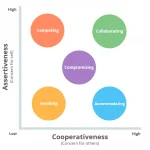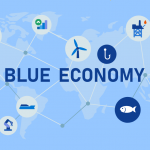By Hon. Prof. Kariuki Muigua, OGW, PhD, C.Arb, FCIArb is a Professor of Environmental Law and Dispute Resolution at the University of Nairobi, Member of Permanent Court of Arbitration, Leading Environmental Law Scholar, Respected Sustainable Development Policy Advisor, Top Natural Resources Lawyer, Highly-Regarded Dispute Resolution Expert and Awardee of the Order of Grand Warrior (OGW) of Kenya by H.E. the President of Republic of Kenya. He is The African ADR Practitioner of the Year 2022, The African Arbitrator of the Year 2022, ADR Practitioner of the Year in Kenya 2021, CIArb (Kenya) Lifetime Achievement Award 2021 and ADR Publisher of the Year 2021 and Author of the Kenya’s First ESG Book: Embracing Environmental Social and Governance (ESG) tenets for Sustainable Development” (Glenwood, Nairobi, July 2023) and Kenya’s First Two Climate Change Law Book: Combating Climate Change for Sustainability (Glenwood, Nairobi, October 2023), Achieving Climate Justice for Development (Glenwood, Nairobi, October 2023) and Promoting Rule of Law for Sustainable Development (Glenwood, Nairobi, January 2024)*
Alternative Dispute Resolution (ADR) mechanisms including negotiation and mediation have also been proposed as viable in managing energy disputes. It has rightly been asserted that commercial relationships in the energy sector are often long term and frequently operate across projects, borders and cultures. This creates incentives for players in the energy sector including energy companies to look at alternatives to more formal dispute resolution mechanisms such as litigation or arbitration.
Alternative Dispute Resolution (ADR) provides parties with the opportunity to manage and resolve disputes before they escalate, which can not only save time and costs but can also preserve critical business relationships. ADR mechanisms possess key attributes including informality, privacy, confidentiality, flexibility and the ability to promote expeditious and cost-effective management of disputes which makes them a viable tool of enhancing access to justice. In addition, these mechanisms have the ability to foster long term solutions by addressing the root causes of conflicts.
These ADR mechanisms are therefore viable in managing energy disputes. For example, it has been observed that negotiation features at some stage in almost every dispute in the energy sector. In most occasions, it is the first process in a dispute resolution journey, either because is mandated by a dispute resolution clause or because it is instigated by the parties at the time the dispute arises. It has been asserted that negotiation in energy disputes is most effective either at the time the dispute first arises, before the parties have formed entrenched views on the matter, or following a mediation or other structured ADR process.
In addition, it has been argued that there is potential for the use of mediation in managing energy disputes in Africa since parties to long-term energy contracts may seek to agree mediated solutions rather than escalating their dispute to a judicial forum. Mediation can be used as a precursor to arbitration, with agreements or investment treaties frequently providing for multi-tiered dispute resolution processes facilitating escalation of disputes to arbitration in the event that mediation is unsuccessful.
The viability of mediation in managing energy disputes in Africa is further enhanced by the United Nations Convention on International Settlement Agreements Resulting from Mediation (‘Singapore Convention’), which promotes the use of international commercial mediation by harmonizing the regime for the enforcement of mediated settlements of disputes. It is therefore important to embrace mediation in the management of energy disputes particularly in cases where parties have a continuing relationship.
From the foregoing, it is evident that there is a wide range of mechanisms available for managing of energy disputes in Africa. However, energy disputes often pose unique challenges that needs to be taken in consideration to ensure their effective management. For example, the industry has always had a political dimension and, by their very nature, energy or natural resources projects are capital intensive and involve long-term commitments.
Therefore, whenever an energy dispute arises, there will often be a narrow line to tread, between standing up for commercial rights and maintaining good longer-term government relations. In addition, it has been asserted that energy related disputes in Africa have historically involved unique challenges as a result of state ownership of energy assets and frequent collaboration between state-owned entities and foreign investors. Such challenges are likely to affect the nature of energy disputes in Africa and the course of the dispute management process.
Further, energy disputes often involve control and management of vital transboundary natural resources and could escalate into protracted legal battles that could threaten peace and sustainable management of natural resources. For example, the construction of the Grand Ethiopia Renaissance Dam on the Blue Nile has resulted in a protracted dispute between Ethiopia and the two neighboring downstream countries of Egypt and which argue that the dam threatens to cut off their water supply. It has been argued that such conflicts in the energy sector if not properly managed could escalate into direct clashes between nations threatening peace and sustainability in Africa.
It is therefore imperative to take these concerns into account in order to foster effective management of energy disputes in Africa. There is also need to address the challenges facing dispute management processes in the energy sector. For example, it has been pointed out that the practice of mediation faces challenges such as enforceability of decisions due to its non-binding nature, the possibility of endless proceedings, lack of precedents and inability to grant urgent protection such as injunctions. It is imperative to address the foregoing concerns in order to enhance effective and efficient management of energy disputes in Africa.
*This is an extract from the Book: Promoting Rule of Law for Sustainable Development (Glenwood, Nairobi, January 2024) by Hon. Prof. Kariuki Muigua, OGW, PhD, Professor of Environmental Law and Dispute Resolution, Senior Advocate of Kenya, Chartered Arbitrator, Kenya’s ADR Practitioner of the Year 2021 (Nairobi Legal Awards), ADR Lifetime Achievement Award 2021 (CIArb Kenya), African Arbitrator of the Year 2022, Africa ADR Practitioner of the Year 2022, Member of National Environment Tribunal (NET) Emeritus (2017 to 2022) and Member of Permanent Court of Arbitration nominated by Republic of Kenya. Prof. Kariuki Muigua is a foremost Environmental Law and Natural Resources Lawyer and Scholar, Sustainable Development Advocate and Conflict Management Expert in Kenya. Prof. Kariuki Muigua teaches Environmental Law and Dispute resolution at the University of Nairobi School of Law, The Center for Advanced Studies in Environmental Law and Policy (CASELAP) and Wangari Maathai Institute for Peace and Environmental Studies. He has published numerous books and articles on Environmental Law, Environmental Justice Conflict Management, Alternative Dispute Resolution and Sustainable Development. Prof. Muigua is also a Chartered Arbitrator, an Accredited Mediator, the Managing Partner of Kariuki Muigua & Co. Advocates and Africa Trustee Emeritus of the Chartered Institute of Arbitrators 2019-2022. Prof. Muigua is a 2023 recipient of President of the Republic of Kenya Order of Grand Warrior (OGW) Award for his service to the Nation as a Distinguished Expert, Academic and Scholar in Dispute Resolution and recognized among the top 5 leading lawyers and dispute resolution experts in Band 1 in Kenya by the Chambers Global Guide 2022 and was listed in the Inaugural THE LAWYER AFRICA Litigation Hall of Fame 2023 as one of the Top 50 Most Distinguished Litigation Lawyers in Kenya and the Top Arbitrator in Kenya in 2023.
*References*
Africa Development Bank Group., ‘Light Up and Power Africa – A New Deal on Energy for Africa.’ Available at https://www.afdb.org/en/the-high-5/light-up-and-powerafrica-%E2%80%93-a-new-deal-on-energy-for-africa (Accessed on 04/12/2023).
Africa Union., ‘Agenda 2063: The Africa we Want.’ Available at https://au.int/sites/default/files/documents/33126-docframework_document_book.pdf (Accessed on 04/12/2023).
Ashurst., ‘Managing and Resolving Cross-Border Disputes in the Energy Sector.’ Available at https://www.ashurst.com/en/insights/managing-and-resolving-cross-borderdisputes-in-the-energy-sector/ (Accessed on 02/12/2023).
Burges-Salmon., ‘Energy Disputes Guide: Managing Risk and Avoiding Disputes in your Energy Project.’ Available at https://www.burges-salmon.com/energydisputes-guide-managing-risk-and-avoiding-disputes-in-your-energy-project (Accessed on 02/12/2023).
Clearly Gottlieb., ‘Resolving Energy Disputes in Africa Through Arbitration and Alternative Dispute Resolution (‘ADR’).’ Available at https://content.clearygottlieb.com/regions/africa-outlook/resolving-energy-disputes-in-africathrough-arbitration-and-alternative-dispute-resolution/index.html (Accessed on 02/12/2023).
Financier Worldwide Magazine., ‘FORUM: Managing Energy and Natural Resources Industry Disputes.’ Available at https://www.financierworldwide.com/forum-managingenergy-and-natural-resources-industry-disputes (Accessed on 02/12/2023).
International Centre for Settlement of Investment Disputes., ‘Annual Report: 2023.’ Available at https://icsid.worldbank.org/sites/default/files/publications/ICSID_AR2023_ENGLISH_web_ spread.pdf (Accessed on 02/12/2023).
International Energy Agency., ‘Access to Electricity.’ Available at https://www.iea.org/reports/sdg7- data-and-projections/access-to-electricity (Accessed on 04/12/2023).
International Energy Agency., ‘Africa Energy Outlook: 2022.’ Available at https://iea.blob.core.windows.net/assets/220b2862-33a6-47bd-81e9- 00e586f4d384/AfricaEnergyOutlook2022.pdf (Accessed on 04/12/2023).
International Energy Agency., ‘Africa Energy Outlook: 2022.’ Op Cit 29 Global Arbitration Review., ‘Energy Arbitration in Africa.’ Available at https://globalarbitrationreview.com/review/the-middle-eastern-and-african-arbitrationreview/2022/article/energy-arbitration-in-africa (Accessed on 06/12/2023).
Kaledzi. I., ‘How Could Ethiopia’s Dam Dispute Escalate?.’ Available at https://www.dw.com/en/how-could-ethiopias-dam-dispute-escalate/a-66798628 (Accessed on 06/12/2023).
McMahon. M., Shah. P., ‘The Rise of Renewable Energy Disputes and Arbitration.’ Available at https://www.stewartslaw.com/news/rise-of-renewable-energydisputes/ (Accessed on 02/12/2023).
Moses, ‘The Principles and Practice of International Commercial Arbitration’ 2nd Edition, 2017, Cambridge University Press.
Muigua. K., ‘Alternative Dispute Resolution and Access to Justice in Kenya.’ Glenwood Publishers Limited, 2015.
Muigua. K., ‘Fusion of Mediation and Other ADR Mechanisms with Modern Dispute Resolution in Kenya: Prospects and Challenges.’ Available at http://kmco.co.ke/wpcontent/uploads/2022/11/Fusion-of-Mediation-and-Other-ADRMechanisms-with-Modern-DisputeResolution-in-Kenya-Prospects-and-Challenges.pdf (Accessed on 06/12/2023).
Muigua. K., ‘Nurturing International Commercial Arbitration in Kenya.’ Available at https://kmco.co.ke/wp-content/uploads/2021/10/Nurturing-International-CommercialArbitration-in-Kenya.pdf (Accessed on 06/12/2023).
Muigua. K., ‘Promoting International Commercial Arbitration in Africa.’ Available at http://kmco.co.ke/wp-content/uploads/2018/08/PROMOTINGINTERNATIONAL-COMMERCIALARBITRATION-IN-AFRICA.pdf (Accessed on 06/12/2023).
Muigua. K., ‘Settling Disputes through Arbitration in Kenya.’ Glenwood Publishers Limited, 4th Edition, 2022.
Nalule. V., Olawuyi. D., ‘Introduction to International Energy Arbitration Disputes in Africa.’ The Palgrave Handbook of Arbitration in the African Energy and Mining Sectors. Palgrave Studies in Energy Transitions. Palgrave Macmillan, Cham. Available at https://doi.org/10.1007/978-3-030-96183-1_1-1 (Accessed on 06/12/2023).
Republic of Kenya., ‘Standard Power Purchase Agreement.’ Available at https://ppp.worldbank.org/public-privatepartnership/sites/ppp.worldbank.org/files/documents/Kenya_ppa_ppfull.pdf (Accessed on 06/12/2023).
Republic of Tanzania., ‘Model Product Sharing Agreement, 2013.’ Available at https://www.resourcecontracts.org/contract/ocds-591adf-8006566420/download/pdf (Accessed on 06/12/2023).
Republic of Uganda., ‘Model Production Sharing Agreement.’ Available at https://www.unoc.co.ug/wp-content/uploads/2018/06/MPSA.pdf (Accessed on 06/12/2023).
The Energy Charter Treaty., Available at https://www.energycharter.org/fileadmin /DocumentsMedia/ Legal/ECTC-en.pdf (Accessed on 06/12/2023).
United Nations Commission on International Trade Law., ‘Convention on the Recognition and Enforcement of Foreign Arbitral Awards.’ (New York, 1958).
United Nations Conference on Trade and Development., ‘Commodities at a Glance: Special Issue on Access to Energy in Sub-Saharan Africa.’ Available at https://unctad.org/publication/commoditiesglance-special-issue-access-energy- subsaharanafrica#:~:text=Access%20to%20energy%20is%20defined,be%20 scaled%20up %20over%20time (Accessed on 04/12/2023).
United Nations Environment Programme., ‘Our Work in Africa.’ Available at https://www.unep.org/regions/africa/ourworkafrica#:~:text=The%20continent%20has%2040%20percent,internal%20renewable%20 fresh%20water%20source (Accessed on 04/12/2023).
United Nations., ‘Advancing SDG 7 in Africa.’ Available at https://sdgs.un.org/sites/default/files/2023- 06/2023%20Advancing%20SDG7%20in%20the%20Africa062923.pdf (Accessed on 04/12/2023).
United Nations., ‘Transforming Our World: The 2030 Agenda for Sustainable Development.’ Available at https://sustainabledevelopment.un.org/content/documents/21252030%20Agenda%20for%20 Sustainabl e%20Development%20web.pdf (Accessed on 04/12/2023).
United Nations: United Nations Commission on International Trade Law.,’ Convention on International Settlement Agreements Resulting from Mediation.’ United Nations, New York, 2019., Available at https://uncitral.un.org/sites/uncitral.un.org/files/singapore_convention_eng.pdf (Accessed on 06/12/2023).
White & Case., ‘Investment Treaty Protection: How to Safeguard Foreign Investments in Africa.’ Available at https://www.whitecase.com/insight-ourthinking/africa-focus-winter-2022-investmenttreatyprotection #:~:text=As%20of%20October%202022%2C%20there%20were%20525%20BITs%20with%20African,OI% 20(Organisation%20of%20Islamic%20Cooperation) (Accessed on 06/12/2023).





 Lawyers1 year ago
Lawyers1 year ago
 News & Analysis2 years ago
News & Analysis2 years ago
 News & Analysis2 years ago
News & Analysis2 years ago
 News & Analysis2 years ago
News & Analysis2 years ago
 News & Analysis10 months ago
News & Analysis10 months ago
 Lawyers1 year ago
Lawyers1 year ago
 News & Analysis2 years ago
News & Analysis2 years ago
 News & Analysis10 months ago
News & Analysis10 months ago




























